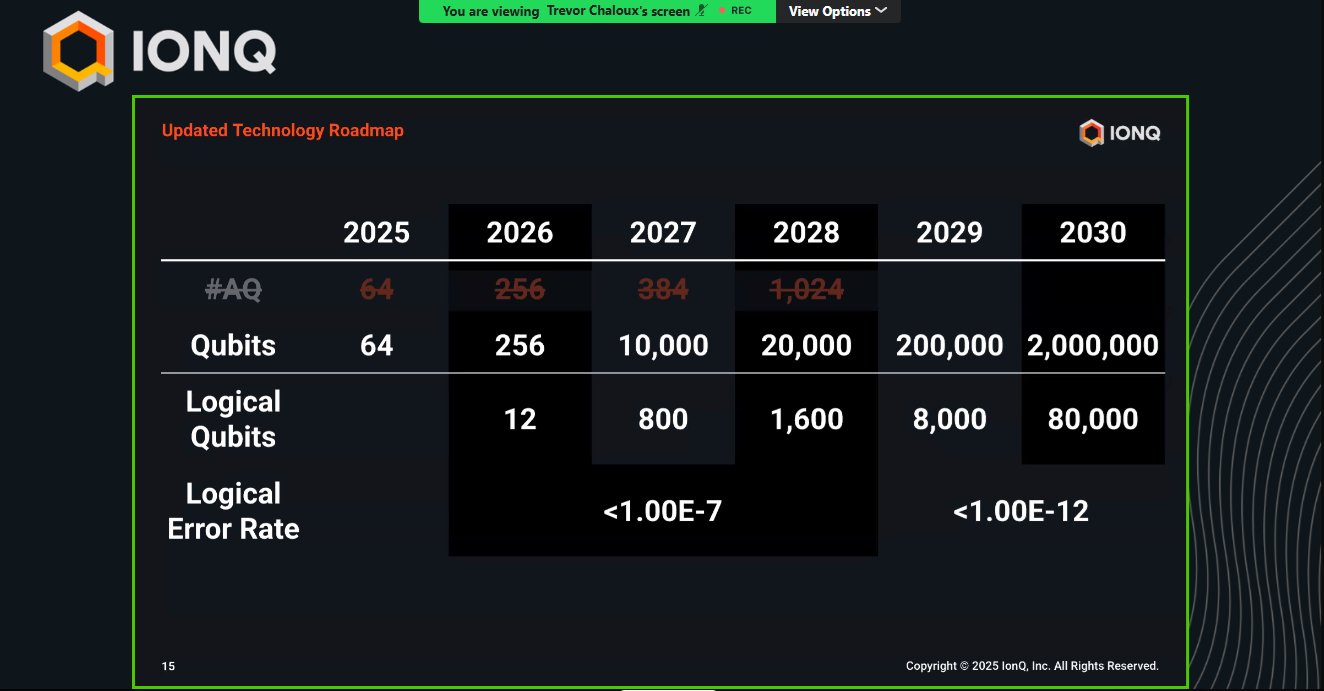Now Reading: IONQ Targets 2 Million Qubits and 80,000 Logical Qubits by 2030
-
01
IONQ Targets 2 Million Qubits and 80,000 Logical Qubits by 2030
IONQ Targets 2 Million Qubits and 80,000 Logical Qubits by 2030

quick Summary
- IonQ Acquisition: IonQ plans to acquire Oxford Ionics for $1.075 billion ($1.065 billion in stock and $10 million in cash).
- Quantum Technology Advancements:
– Current fidelity of 99.99% accuracy achieved.
– On track for quantum machine benchmarked at AQ64 by end of the year.
– Expansion from 1D to 2D ion-trap technology achieving a density increase of up to 50x per chip.
- Future Vision:
– Fault-tolerant quantum computer with over two million physical qubits and eighty thousand logical qubits expected by 2030.
- Market Impact: Quantum computing projected to generate up to $850 billion global economic value by the year 2040, according to Boston Consulting Group.
- Global Collaboration:
– Oxford-based workforce expansion planned as part of efforts in developing UK leadership capabilities in quantum technologies while maintaining customer relationships with governments globally.
For further details, Read more.
Indian Opinion Analysis
The acquisition between IonQ and Oxford Ionics presents significant advancements not only for global quantum computing but also highlights key opportunities for India’s role within this emerging industry. Key implications include how such progress might shape manufacturing efficiencies, pharmaceutical research, or defense applications-areas where India has historically shown strategic interest.
India could position itself as an crucial collaborator or end-user within such disruptive applications if government policies continue encouraging partnerships under its National Quantum Mission initiative launched earlier while advocating through scientific accelerated R&D pathways overlapping innovation-sharing levels similar strengthening cooperative foundations vital toward workforce educated tech-demand draft settings astride International-linked fusion/backend setups focused neutral analytics sustainable steps systems mark tightened maximized inclusive steady-read ratios innovations tensor-linked




























